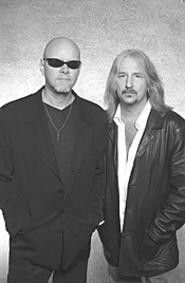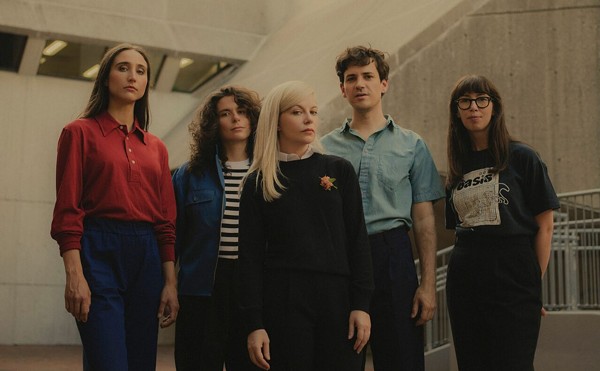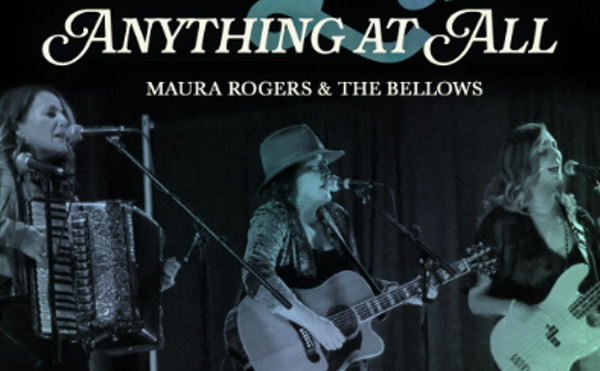Russell and his bandmates were not among those indicted by a Rhode Island grand jury last December; the Station's two owners and Great White's former tour manager, 26-year-old Dan Biechele, were each charged with 200 counts of involuntary manslaughter and could face up to 30 years in prison. Russell remains the most reviled man in Rhode Island, a state that's been left to absorb many of the financial aftershocks of the fire; recent estimates place the damages at more than $100 million. Potential lawsuits against local officials could bankrupt the tiny working-class hamlet of West Warwick.
Yet Great White rocks on. Three months after the inferno, the band was back on the road, to the astonishment of many in Rhode Island and the music industry. Russell described the tour as a fund-raiser for the Station Family Fund (www.stationfamilyfund.org), an organization formed by a survivor of the fire. This summer, he kicks off another tour, raising anger and suspicion as well as money.
Scene: It's hard to imagine how you could ever get on a stage again after what happened. Why are you still touring?
Russell: It was very difficult, and I asked myself the same question: How can I ever get out there again, when so many people lost their lives? But the only thing that got me off my couch and off my psychiatrist's couch was the support of my fans. We got tens of thousands of e-mails from people supporting the band and asking for help. What was I going to do -- sit around and mope for the rest of my life, feel sorry for myself? No. I had to get out there and do what I could.
Many people in Rhode Island say they don't want your help.
I understand that. People want to blame the band. That's OK. My only problem with those people is that when we started to tour, they were trying to stop us. I'm saying, "Wait a minute. You've got hundreds of people saying, 'Thank you. We need the help. Our kids need school clothes. I need to pay my doctor bills.'" Why would you want to stand in the way of that? If you don't want our help, don't take it, but don't stop us from helping someone else.
You've been accused of benefiting from what happened.
The only way I know how to raise money is to sing. People say, "Oh, they're just doing this so they don't get indicted." Well, the indictment's already come down, and we're still doing the tour. It's not to enhance Great White's future. Great White's going to be a club band forever, and that's just the way it is. No matter what we do, for the rest of our lives, we will always be associated with a nightclub fire that killed 100 people. They say, "Oh, they're just trying to make their career come back." Give me a break -- I'm not that stupid. The '80s aren't coming back. I wouldn't want them to.
You did 41 dates last year and raised more than $70,000. This time out, a smaller percentage of your profits will go to the fund.
Seventy thousand's not bad for a band playing nightclubs. On the last tour, we committed to give 100 percent of the profits to the fund. After we paid expenses, we gave to the fund. We went basically all last year without making a living. Obviously, we can't continue to do that for the rest of our lives; we've got families to feed as well. We need to make a living. We're taking a small percentage, and whatever is left over, we're giving away. We're in a van; we stay at the cheapest hotels. This stuff helps us give more to the fund.
You're expected to be named in several civil suits. Is any of the money that you're raising going toward your own legal defense?
My legal defense is my problem. Any money I make on the road, I'll take my portion and pay my own bills. I'm not expecting our fans to pay my legal bills.
Were you surprised that the band wasn't indicted?
I'm a singer, not an attorney general. We didn't know from one minute whether they were going to indict the band or not; it wasn't that important. We had other things to think about -- like the tour, helping these people out. The justice system is going to follow its own course.
Dan Biechele is facing a possible 30-year prison sentence. You would have been looking at the same thing.
I've been in prison before, for a year and a half, on a drug charge. I was a little kid; it was all involved with drugs. That was a whole lifetime ago. If that was what happened, I would have dealt with it.
You've shied away from saying whether you think Great White has any responsibility for what happened.
I feel badly about what happened. I feel terrible every fuckin' minute of my life. I lost three very close friends and 97 other friends. But there was nothing I could have done to prevent it. There was nothing that Jack Russell or Great White could have done to prevent this from happening.
So who is responsible?
There were so many things that were missed. The place was over capacity, and the amount that it was over was almost equal to the number of people who died. There's a computer model that was done in Rhode Island; they determined that if the place had been at capacity, people would have been able to get out. I'm not saying it's the inspector's fault or the club owners' fault, but you have to wonder about certain things: Why didn't the fire marshal notice the cheap foam? Lots of other bands had played there with pyro; it's just a miracle that this hadn't happened earlier.
You got out with no injuries. Some victims resent you for it.
I lived because somebody pulled me out the back door. I kept trying to go back in. Finally, this guy's like, "No. If you go in there, you're going to die." Here's how not-serious we thought this was at first: A minute after I got out the back door, I went to the bus, grabbed my cell phone, and called my fiancée. I said, "Honey, there's a fire. I think we might lose the equipment." We all thought that somebody would come with a fire extinguisher, they'd put it out. But there was no fire extinguisher.
When did it become clear to you that it was more than a little fire?
About a minute after I hung up the phone. That place literally went up in like three minutes. It was from a little fire on the wall to a roaring inferno in a matter of minutes.
When you took a look at the Station, wasn't there a moment when you thought, "Damn, this ceiling's pretty low"?
I don't set the pyro up. That wasn't my job. The way I look at it is, if I'm a chef in a restaurant and somebody hires me to come in and cook, am I going to go back there and check the gas lines behind the stove to make sure they're hooked up properly? I'm going to expect that the club owners or whoever's running the business, if they say we're safe to use pyro, then it's going to be safe.
But it wasn't safe. It seems like it would have been obvious.
There were a lot of mistakes made that night, and it's not for me to point the finger at anybody. Nobody wanted 100 people to die. I don't think the fire marshal, when he inspected the club and didn't notice the foam, wanted 100 people to die. But what do you do now? You've gotta say, "Okay, what can we do to make sure this doesn't happen again?" That's why I'm really adamant about tougher laws and tougher codes and tougher fire codes. And I think people need to be more proactive as individuals. I go to a restaurant, I'm looking for the exit doors. I've got fire extinguishers in my house now. I don't expect the fire department to be here in two minutes if something happens. What if they're not? What if they're here in 20 minutes? Anything can happen at any time.
Do you experience any survivor guilt?
I think I did. I was lucky enough to escape with my life, and I thank God for that every day. But it wasn't like I didn't lose anything. I lost 100 friends -- three of them very close friends. Not one person came out of there unscathed. You might have walked out not burned or unharmed, but you didn't come out without some kind of emotional scar. There are always questions: Why did this happen to me? Then I realized it's not about me. What can I do with this lesson here? How come I lived? How come my guitar player died?
There are a lot of really horrible stories about some of the survivors -- people who will forever be confined to beds or have their eyes sewn shut or have burns over 90 percent of their bodies. Life is different for a lot of people now. How is it different for you?
It's made me look at everything in my life. It's like a second chance. I've made some changes in my personality, my relationships. It's not like, "Whoopee, I'm alive." Because so many people weren't so lucky, and I wouldn't wish what I've been through on anyone. But by the same token, I'm here and I'm whole, and I'd better do what I can.













